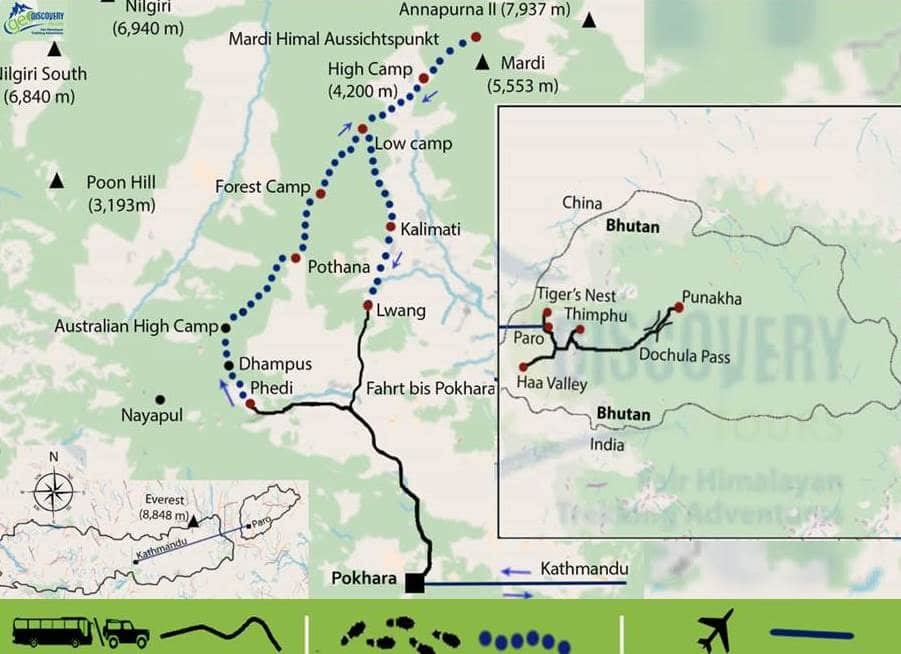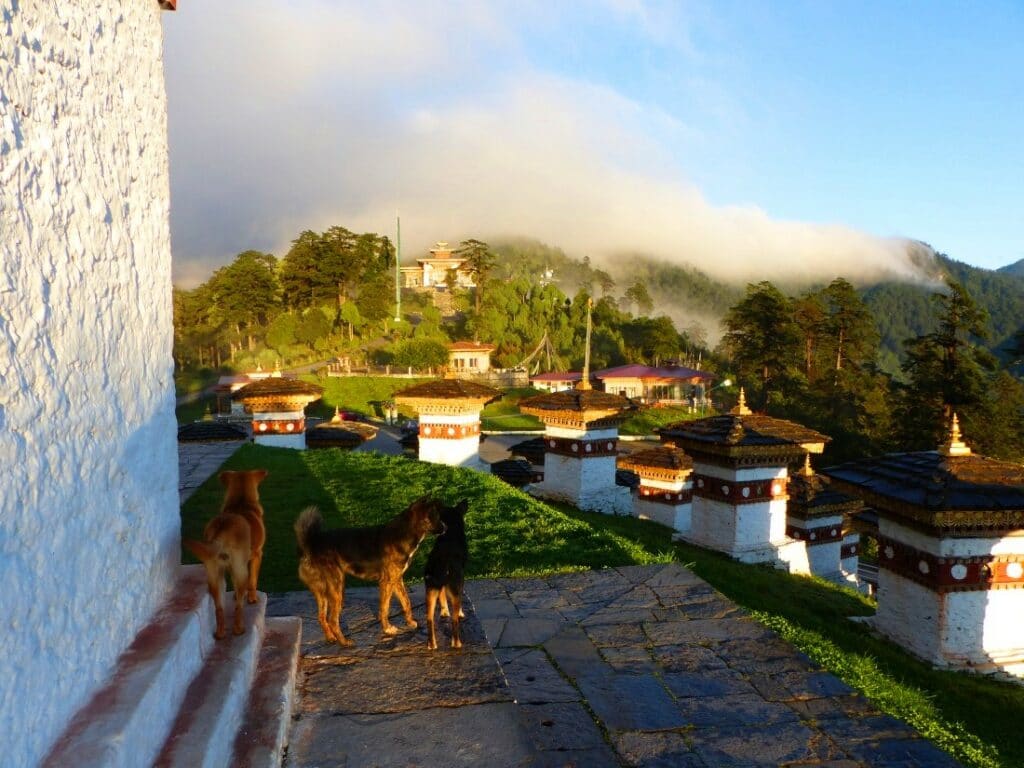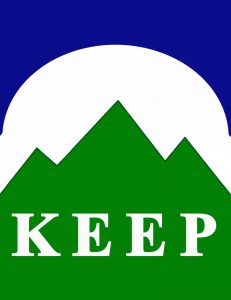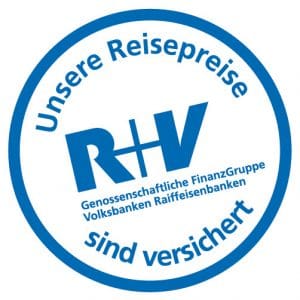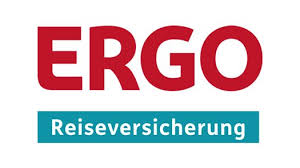Trekking and cultural tour in Bhutan and Nepal
- Description
- Gallery
- Trip itenerary
- Trip dates, prices and services
- Important travel information
- Request Book
Ice giants, sublime nature and lively, untouched cultures. This trip combines trekking in a diverse region in Nepal with an extraordinary culture in Bhutan.
You will have the time to explore the important religious and cultural sites in both countries and enjoy the panoramas of the world’s most beautiful mountains through the trek to the Mardi Himal viewpoint.
The trip in Nepal starts with a sightseeing tour in Kathmandu and then takes you to the vegetation rich Annapurna region where you will start your 8-day trek. Compared to the other well-traveled routes in the region, this trek takes you through a much less frequented area with incredible landscapes, rhododendron forests, traditional villages, wildlife, friendly locals and spectacular views of the snow-capped peaks.
Afterwards you will travel for 8 days to the land of festivals, myths and happy people, to Bhutan and marvel at the sights, the monasteries and the festivals in Paro, Thimphu and Punakha.
This trip truly offers you an impressive world full of original traditions, religions, cultures and beautiful nature.
Trip Details
Day 1: Arrival in Kathmandu
You will be picked up at the airport and driven to your hotel. In the afternoon we will explain the details of the trip with you, and in the evening you are invited to a welcome dinner. Overnight in Hotel Tibet or similar category, (B).
Day 2: Kathmandu sightseeing and preparation for trekking
Today we explore Kathmandu with a local guide. We will visit Pashupatinath – a Hindu temple with cremation sites, Swayambhunath – also known as the monkey temple – and the Boudhanath Stupa. In the late afternoon we will return to the hotel and pack for the tour the next morning. The rest of the day is at leisure. Overnight in Hotel Tibet or same category, (B).
Day 3: Flight to Pokhara – drive to Phedi and trek to Pothana (1.925m) – 4 hours hike
After breakfast we take the short and scenic morning flight to Pokhara. After arrival we drive to the starting point of the hike in Phedi and start the trek to Pothana, where you spend the first night in a tea house. Overnight at the Tea House Lodge, (B|L|D).
Day 4: Trek to the Forest Camp near Kokar (2,600m) – 4 hours hike
We hike from Pothana to a place called Pitam Deurali, where we leave the main path to Annapurna Sanctuary and continue on a quiet path through a dense forest of oak, maple and rhododendron. Tonight we spend the night in one of the forest huts at Forest Camp or also known as Kokar. The Kokar lodges are quite basic and there is no dining room so you will likely have meals in the kitchen with the owner. In a way, this is more of a host family and a good opportunity to get to know this friendly family from the Siding Village. Overnight at the Tea House Lodge, (B|L|D).
Day 5: Trek Kokar to Low Camp (3,150m) – 5 hours hike
From the Forest Camp to the Low Camp, the path continues through the forest, with the vegetation beginning to change during the ascent. More rhododendrons appear and the trees are covered with moss, lichens and ferns. In the Low Camp there are two simple huts, one of which even has a dining room with an open fire. The view from the Low Camp on the Machapuchare at the end of the valley is fascinating. Overnight at the Tea House Lodge, (B|L|D).
Day 6: Trek Low Camp to High Camp (3,600m) – 4 hours hike
An hour above the Low Camp, the path branches above the tree line and heads west, where we enjoy a beautiful view of the Annapurna south face and the Hiunchuli. The path continues along the Mardi Himal ridge, mostly on grass-covered ground with a few isolated rhododendron bushes lining the path. Look out for the colorful Danphe Pheasant in this section of the trail! The view of the Annapurna south face, the Hiunchuli and the Machapuchare (fishtail) from the hut is impressive. Overnight at the Tea House Lodge, (B|L|D).
Day 7: Day trip to the Mardi Himal viewpoint (4,200m) – and back to the Low Camp (3,150m), 6 – 7 hours hike
If we want to experience an atmospheric sunrise today, we have to get up early. After a very early breakfast we hike up the ridge to the Mardi Himal viewpoint at 4200 m. The moderately inclined grass path has a few steeper, exposed sections, but these are generally not too much of a challenge. Look out for both the dzos (cross of yak and cow) grazing up there and again for the danphe pheasants. In summer the sheep and goats are brought to graze from the lower-lying villages to the higher-lying grass areas. This means that you will come across many cattle huts along the way. After three hours we should reach the upper vantage point at 4,200 meters, where we can look at the huge Annapurna massif and a spectacular panoramic view of its south face and its many peaks, as well as the Hiunchuli and the Machapuchare, which is considered particularly sacred ( Fishtail). Overnight at the Tea House Lodge, (B|L|D).
Day 8: Trek to Kalimati (1,900m) – approx. 5 hours
We climb the path downhill through Lumre until we reach Kalimati. The village is mainly inhabited by the Brahmin ethnic group. Overnight at the Tea House Lodge, (B|L|D).
Day 9: Trek to Lwang (1,400m) – 5 hours
The way to Lwang leads you through beautiful cardamom fields with easy ascents and descents. The inhabitants of this village belong to the Gurung ethnic group and know how to cultivate their culture. Overnight at the Tea House Lodge, (B|L|D).
Day 10: Walk through the tea plantations and drive to Pokhara (822m) – approx. 1 hour walk and 3 hours drive
From Lwang we climb uphill for about 30 minutes to look at the beautiful tea plantations of this region, and hike on through oak forests, rhododendrons and white birches with again incredible views of the south face of Annapurna, Hiunchuli and Lamjung, until we get on ours meet previously organized jeep that drives us back to Pokhara. Overnight at Hotel Mount Kailash Resort or similar category, (B).
Day 11: Sightseeing and free time in Pokhara
The enchanting Pokhara Valley with its many lakes and fantastic views of the broad and mighty Annapurna massif in the background is the ideal place to end a trekking tour. The tourist area, also known as “Lakeside”, is located next to Lake Phewa, which is famous for boating and is ideal for relaxing. Pokhara is in an excellent location for activities such as trekking in the Annapurna region, rafting, paragliding, bird watching, ultra light flights and mountain biking. Pokhara includes the three lakes Phewa, Bagnas and Rupa, the mountain museum, the Barahi temple, Mahendra Gupha, Devin’s waterfall, Peace Pogoda and the old Pokhara Bazaar with some sights. The locals in this region are mainly from the Gurung and Magar people. Overnight at the Hotel Mount Kailash Resort in Pokhara or similar, (B).
Day 12: Flight to Kathmandu and free time
We fly to Kathmandu early in the morning. The rest of the day can be used as freetime. Overnight in Hotel Tibet or similar category, (B|L).
Day 13: On to Bhutan – Transfer to the airport for the flight to Paro, drive to Thimphu
We fly to Paro early in the morning. If the weather is clear we should have fantastic views (from the left side of the cockpit) of much of the eastern half of the Himalayas, including the 8000m peaks of Everest, Nuptse, Lhotse, Makalu and Kanchenjunga. After landing and completing the visa formalities in Paro, we drive to Thimphu, the capital of the country at 2,300 meters. There we will check into our hotel and take a break. In the evening we can listen to Bhutanese chants and walk around the stupa monument (Memorial Chorten) there. Overnight in the hotel, (B|L|D).
Day 14: Sightseeing in Thimphu – Astrology School, Mini Zoo, Buddha Point
We are going to the north of Thimphu. The first stop brings us to the astrology school. Then we continue north to Dodena to visit the mini zoo and observe the national animal “Takine”. We return to Thimphu for lunch. Then we undertake an easy hike (about 1.5 hours) through a pine forest to the Wanduetse temple. From here you have a wonderful view of the Thimphu Valley. Another beautiful view awaits you from Buddha-Point / Kuenselphodrang (2,600 m). The 52 meter high Buddha statue has become a landmark of Thimphu city in recent years. Overnight in the hotel, (B|L|D).
Day 15: Thimphu to Punakha (71 km, approx. 3 hours drive) – Dochula Pass and visit to the Mad Man`s Temple
Today we drive to the Punakha Valley (1,240m) after breakfast. Punakha was the capital of Bhutan until 1955 and is now the winter residence of the central monks’ association. On the way we will stop at Do Chula Pass at 3,150 meters to look at the 108 chortens built on three levels. With a little luck and in good weather conditions, we will be able to see the main Himalayan ridge from there, including the Gangkar Puensum (7,570m), the world’s highest unclimbed mountain, should the visibility be good.
In Messina we will stop for lunch. Afterwards a visit to the Mad Man‘s Temple (Chimi Lhakang) is on the agenda. The temple, built in 1499, stands in the middle of the valley on a small hill. It was dedicated to the Lama Drukpa Kunley (1455-1529) – also known as “Divine Madman” – who was known for his humor, his songs and his outrageous behavior. Childless couples who pray at this temple are said to find happiness afterwards.
In Punakha we will first check into our hotel and have the afternoon at leisure. There are various activities such as archery, learning to cook Bhutanese and / or taking a hot stone bath (typical type of steam bath). Overnight at the hotel in Punakha, (B|L|D).
Day 16: Sightseeing Punakha Dzong and drive to Gangtey (Phobjikha Valley); Afternoon hike – 80km, approx. 3 hours)
After breakfast we will drive along the Pho Chu River in Punakha and cross a suspension bridge. After a short and gentle walk we reach the historic monastery fortress “Punakha Dzong” from the 17th century. This inspiring palace was built by Zhabdrung Ngawang Namgyal in 1637, houses many sacred relics and was the seat of government. Afterwards we leave the main road and drive up to the Lawala Pass and into the wonderful Gangtey Valley. If possible, we can visit the ruins of Wangdue Dzong along the way. After lunch there will be enough time to explore one of the most beautiful valleys in Bhutan. This U-shaped glacial valley, which is often also called Phobjikha valley, is wide, has hardly any trees and gives the impression of a huge space. The valley is home to some of the most biodiverse wetlands in Bhutan. Keep an eye out for barking deer, sambar deer and wild boar. Himalayan black bears have been spotted in the valley and bird life is abundant. The graceful black-necked cranes from Tibet also come here during the winter season. The cranes usually arrive around the end of October and circle the monastery three times when they arrive! They spend the winter in the valley and in the spring they fly around the monastery three times again before returning to Tibet on a dangerous flight for the summer. We can also visit the Black Crane Information Center and Gangteng Monastery. Today’s trip is about 84 km long and takes 2.5 to 3 hours, although different road conditions can mean that we will be on the road longer. Overnight in the hotel in the Hotel Dewachen, (B|L|D).
Day 17: Day in Gangtey / Phobjikha valley
After breakfast we take a stroll through the village and can talk to the believers in the village monastery. If you feel like it, you can still put your hand to a traditional bow to get even more in touch with the villagers. In the afternoon we drive back to Paro. Overnight in Hotel in Paro, (B|L|D).
Day 18: Gangtey to Paro (130 km, approx. 4 hours drive)
After a leisurely breakfast we drive back to Paro. The Paro Valley is considered one of the most beautiful valleys in Bhutan, with blue pine hills and attractive solidly built houses amidst rice paddies. After lunch we visit the Dzong or Kyichu Lakang, one of the oldest temples in Bhutan, built by the 7th century Tibetan King Songtsen Gampo. Overnight at the hotel in Paro, (B|L|D).
Day 19: Paro to Tiger’s Nest
Today we hike up to the Tiger’s Nest (Tiger’s Nest). The most famous monastery in Bhutan was recently registered as one of the most sacred places in the world. This monastery is also the holiest in Bhutan. It towers 900 meters above the Paro valley and is known as the tiger’s nest because Guru Rimpoche allegedly came to this place on the back of a tigress in the 8th century. On the five-hour intensive but rewarding mountain tour to the monastery, on which more than 900 meters of altitude are conquered, body and soul are equally cleansed, and the sight of the monastery up close is also worth the effort. We recommend taking trekking shoes, trekking poles and plenty of water with you. Please note that there is about 100 steps up and down. Overnight at the hotel in Paro, (B|L|D).
Day 20: Flight back to Kathmandu
It’s time to say goodbye to Bhutan! Today you say goodbye to your guide and driver and you will be driven to the airport in Paro to fly to Nepal / Kathmandu. You will be picked up from Kathmandu Airport and driven to your hotel. The rest of the day can be used as freetime. Overnight in Hotel Tibet, (B).
Day 21: Flight back home
Farewell and transfer to Kathmandu Airport. End of the trip, (B).
We reserve the right to change the program due to special events, force majeure or weather conditions.
B = Breakfast | L = Lunch | D = Dinner
German guided tour
English guided tour
26. October 2024
3.990 €
Request non-bindingBook bindingly
02. November 2024
3.990 €
Request non-bindingBook bindingly
09. November 2024
3.990 €
Request non-bindingBook bindingly
15. November 2024
Black Necked Crane Festival
3.990 €
Request non-bindingBook bindingly
24. November 2024
3.990 €
Request non-bindingBook bindingly
30. November 2024
3.990 €
Request non-bindingBook bindingly
15. December 2024
Druk Wangyel Tshechu
3.990 €
Request non-bindingBook bindingly
16. March 2025
Punakha Tshechu
3.990 €
Request non-bindingBook bindingly
11. April 2025
Talo Tshechu in Punakha
3.990 €
Request non-bindingBook bindingly
15. April 2025
Paro Tshechu
3.990 €
Request non-bindingBook bindingly
08. May 2025
3.990 €
Request non-bindingBook bindingly
22. May 2025
3.990 €
Request non-bindingBook bindingly
05. June 2025
3.990 €
Request non-bindingBook bindingly
19. October 2025
Gangtey Tshechu
3.990 €
Request non-bindingBook bindingly
30. October 2025
3.990 €
Request non-bindingBook bindingly
13. November 2025
3.990 €
Request non-bindingBook bindingly
27. November 2025
3.990 €
Request non-bindingBook bindingly
04. December 2025
3.990 €
Request non-bindingBook bindingly
This tour can also be booked for your individual group at an additional cost at dates other than shown here.
Duration: 21 days
Costs: 4.290€ per Person
Group size: min. 2 Persons (all the tour dates are guaranteed with a minimum group size of only two persons)
€ 390 for single room supplement (only for hotel accommodation, for lodge overnight stays during the trek, especially during the high season, single accommodation is not available)
What’s included:
- Airport transfers in Bhutan and Nepal
- Flight Kathmandu-Pokhara-Kathmandu and 15kg free luggage
- Flight from Kathmandu Paro–Paro-Kathmandu and 20kg free luggage
- All relevant surface transfer
- All hotel accommodation with breakfast in Nepal
- Accommodation and all meals during the trek
- Guide and porters during the trek
- All meals in Bhutan (B|L|D)
- Sightseeing with entrance fees, guide and vehicle
- Permit, National Park Entrance/Conservation Fees
- Guide & Driver in Bhutan
- Tourist fee per day and person, in Bhutan
Not Included:
- International Flights
- Additional tours and meals that are not mentioned
- Beverages
- Personal bills
- Visa Nepal (approx. US$ 50) and Visa Bhutan (US$ 40)
- Excess baggage charge (beyond 20 Kg each)
- Insurance (for cancellation, accident, health, emergency evacuation and loss, theft of or damage to baggage and personal effects)
- Tips
Visa
Visa fees for Bhutan are included in the price. We will provide the visa applications. Visa fees for Nepal are not included in the price and will be paid in the airport at arrival in Kathmandu (around US$ 50). Two passport size photographs must be provided for the visa. At the time of the trip your passport must be valid for at least a further six months and have at least two blank pages.
These visa and passport regulations apply to EU countries, Switzerland and the USA. Other nationals should check with the relevant consular authorities.
Vaccinations
There are no vaccinations required for traveling to Bhutan at this time. However, you should be vaccinated against COVID-19, tetanus, hepatitis A and diphtheria. We recommend you consult your GP (general practitioner) in good time, about three months before your trip.
Insurance
Travel health insurance (with rescue costs) is essential for your own safety and a prerequisite for booking our trips. In the event of an accident in a country that requires a helicopter, it will not take off until the full cost coverage has been clarified. We strongly recommend that you take out travel cancellation insurance. Flights at bargain prices in particular cannot usually be re-booked or canceled free of charge. Complications with your health could also occur in the travel destination that force you to discontinue your trip.
We have requested ERGO (Reiseversicherung) to create various service packages for you. You can book travel cancellation insurance at www.reiseversicherung.de.
Please note: ERGO insurance can be booked by residents of Germany and Austria. Those living in other countries are requested to book their travel insurance through an insurance provider in their own country.
It should be noted that geoDiscovery Tours advises its customers to book their travel insurance via ERGO as a recommendation only, and accepts no responsibility for the contractual content between the customer and the travel insurance provider. Customers can book their travel insurance via ERGO or another provider at their own discretion.
Flying in Bhutan and Nepal
The flights booked by us, between Nepal and Bhutan are with Bhutan Air or Druk Air. The domestic flights in Nepal booked by us are with Tara Air, Yeti Air, Sita Air, Summit Air or Buddha Air.
The hotels and lodges booked by us
In Nepal and Bhutan the hotels we book are good and correspond to medium-level Western standards. Sanitary facilities are clean and functional; the hotel cuisine is adapted to Western eating habits and the food is safe to enjoy. In Nepal, there may sometimes be power cuts or no hot water available for a while. The hotel staff is generally very friendly and looks after the welfare of guests. The hotels booked by us are as follows:
In Bhutan
Thimphu: Hotel Phuntsho Pelri
Phobikha: Hotel Dewachen
Bumthang: Hotel Ugyen Ling
Punakha: Meri Puensum Resort
Paro: Tashi Namgay Resort
In Nepal
Kathmandu: Hotel Tibet/Manaslu ***+
Pokhara: Mount Kailash Resort, Lake side retreat ***
Lumbini: Hotel New Crystal ***
Chitwan: Jungle Villa Resort
Nagarkot: Nagarkot Farmhouse
Tour program
The travel program for all of our recommended tours is carefully planned. It can happen, however, that roads are closed without advance notice or are impassable, that there are waiting times of several hours because of traffic congestion or fuel shortages and that specific tourist attractions are closed for various reasons. Other restrictions such as flight delays or even cancellations due to bad weather, strikes or the health of participants may also make the implementation of the travel program more difficult or at worst make it impossible. However, our local guides are prepared for such situations and will make every effort to achieve every aspect of the program to your satisfaction. As a result the inconvenience can normally be kept to a reasonable level. Nevertheless, it must be pointed out at this juncture that for the above reasons program changes are possible at any time and cannot be influenced by the organizers. The resulting costs are borne by the traveler. We ask for your understanding.
Road Situation
Despite high mountains, steep slopes, and the deepest of valleys Bhutan has a relatively well developed network of roads. It is difficult to find a length of either straight or flat road. In some stretches one can encounter 6 to 7 bends per kilometer! Steep ascents and descents are characteristic of road travel in Bhutan and this can make traveling much slower than one may be used to. The average driving speed is 40 km per hour. Travelers need to be adaptable, however.
Trip Details
- Duration: 21 days
- Holiday Type: Hotel / Lodge
- Best trekking period: Oct/Nov/Dec/Feb/Mar/Apr/May
- Difficulty: Moderate
- Max Altitude: 4.200 m
- Group size: Min. 3 persons (all the tour dates are guaranteed with a minimum group size of only three persons)
- Tour guide: German speaking, trained Nepalese/Bhutanese mountain guide/tour leader
-
Difficulty:
-
Fitness:
- Price: 3.990,00 €
-
Single room supplement:
390,00 €
(only for hotel accommodation, for lodge overnight stays during the trek, especially during the high season, single accommodation is not available)

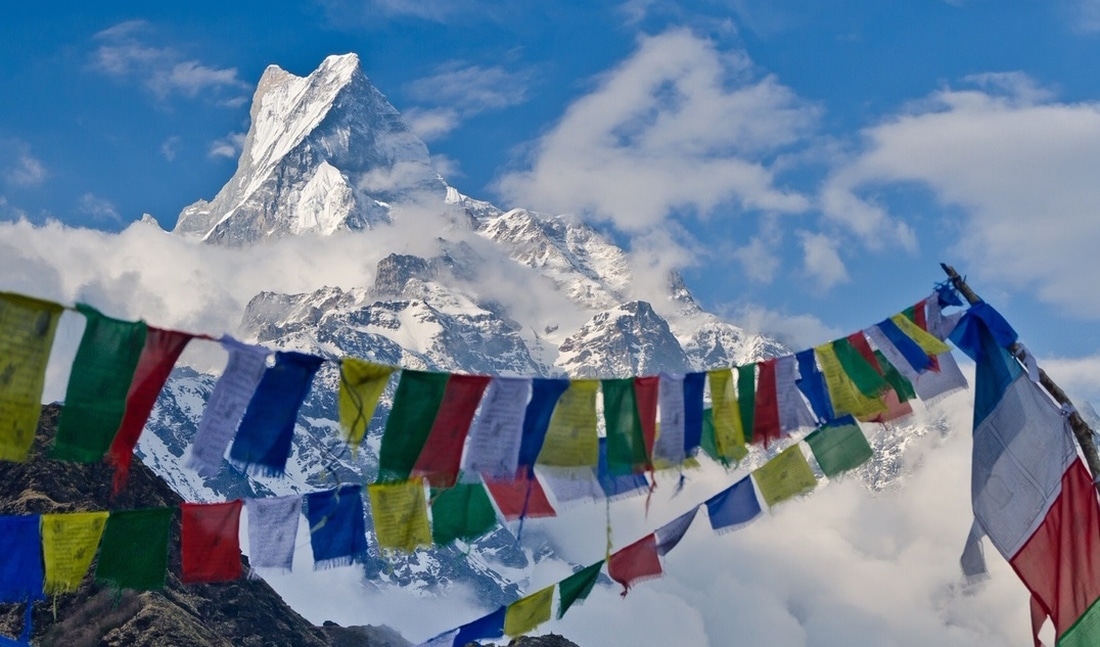
 Bhutan
Bhutan 